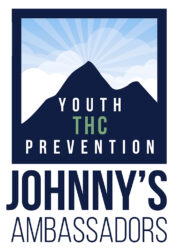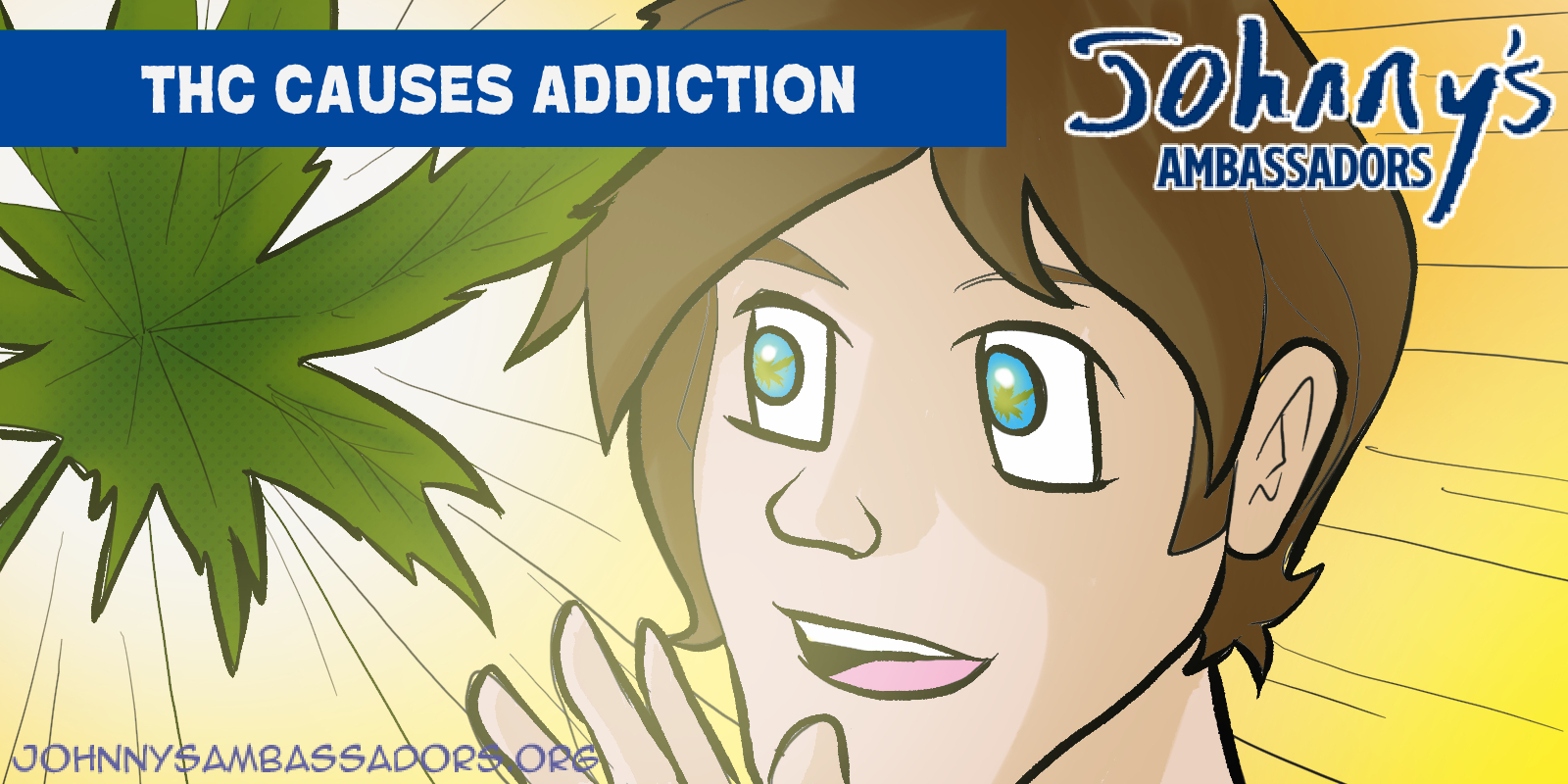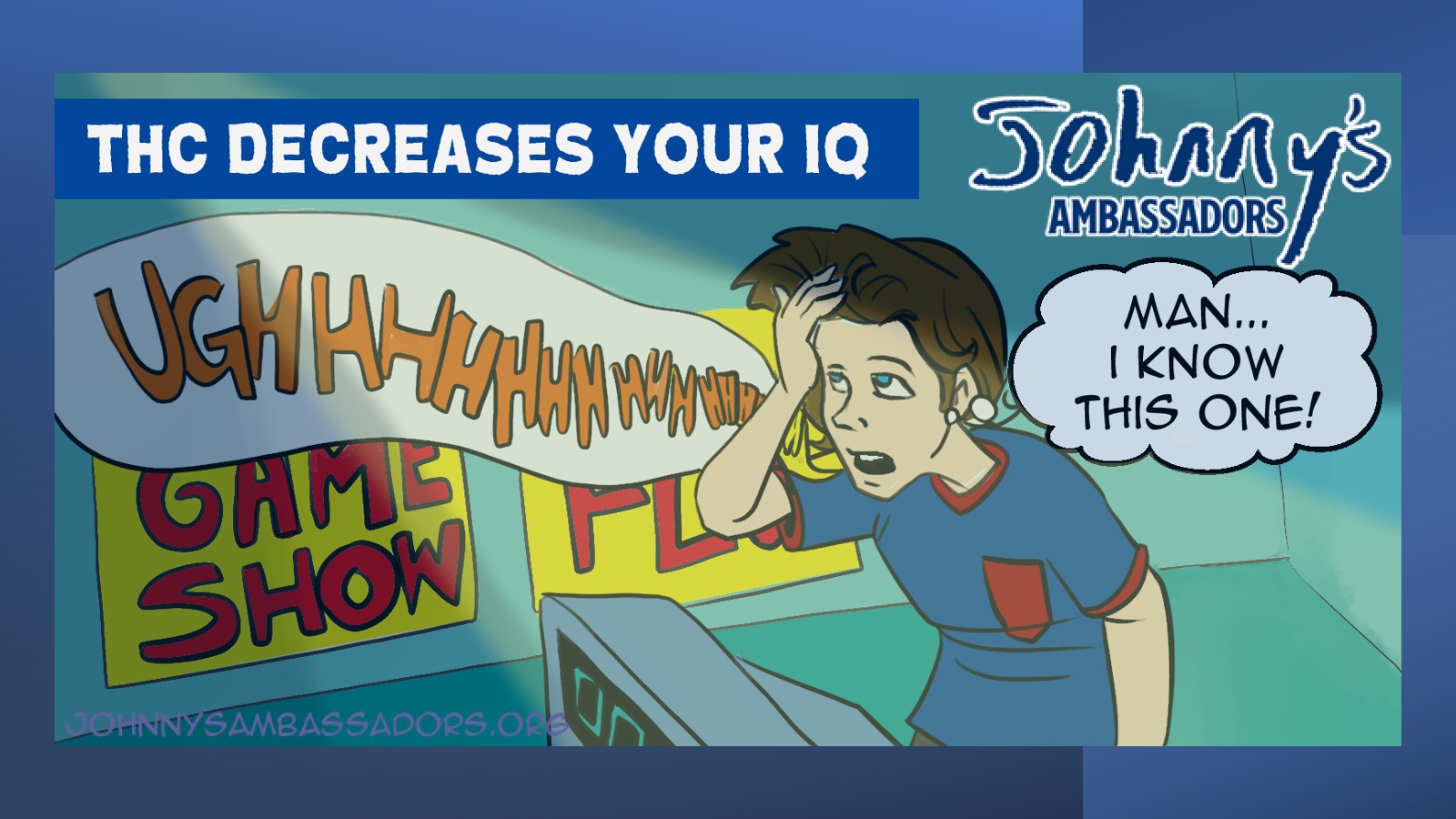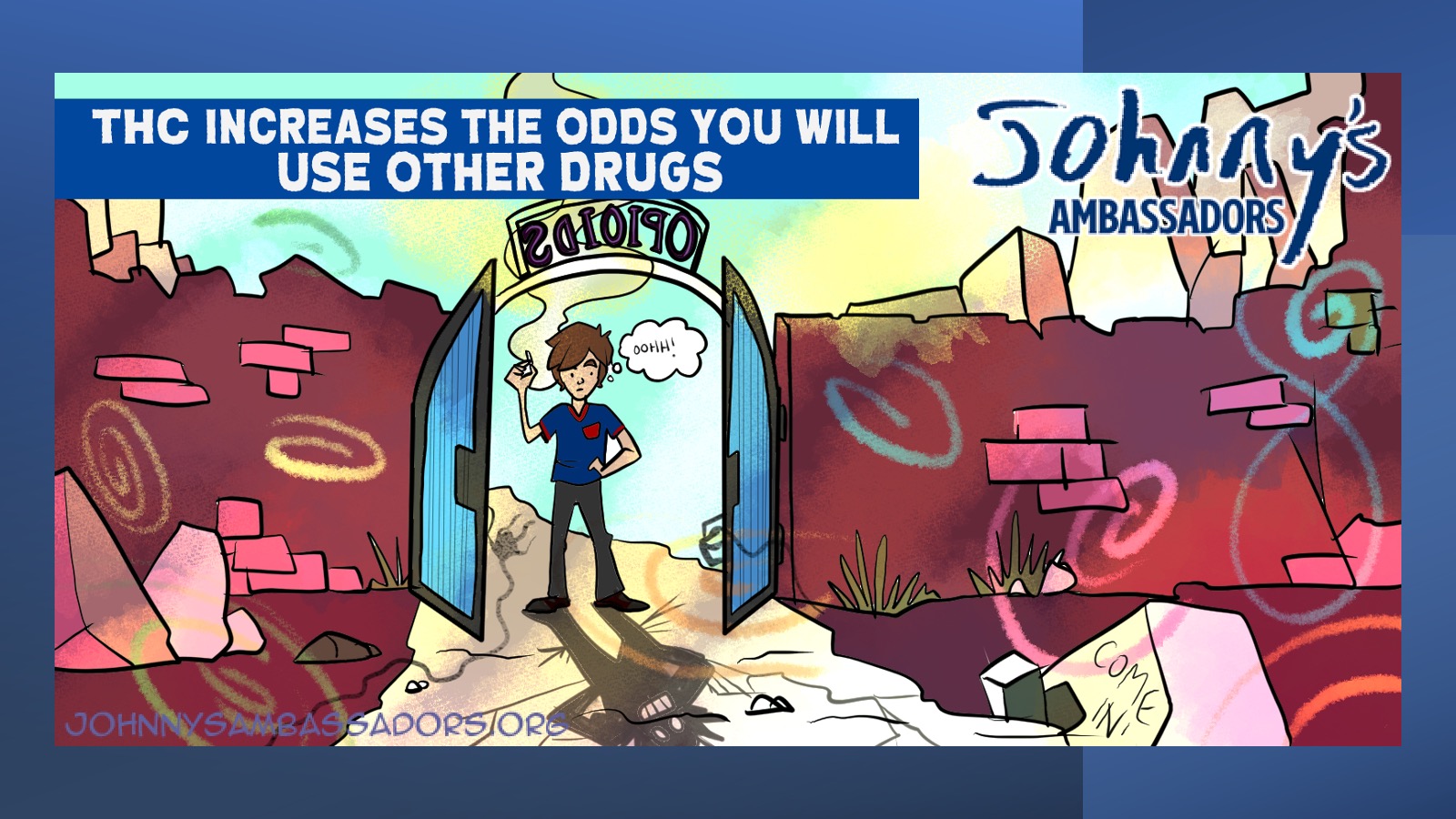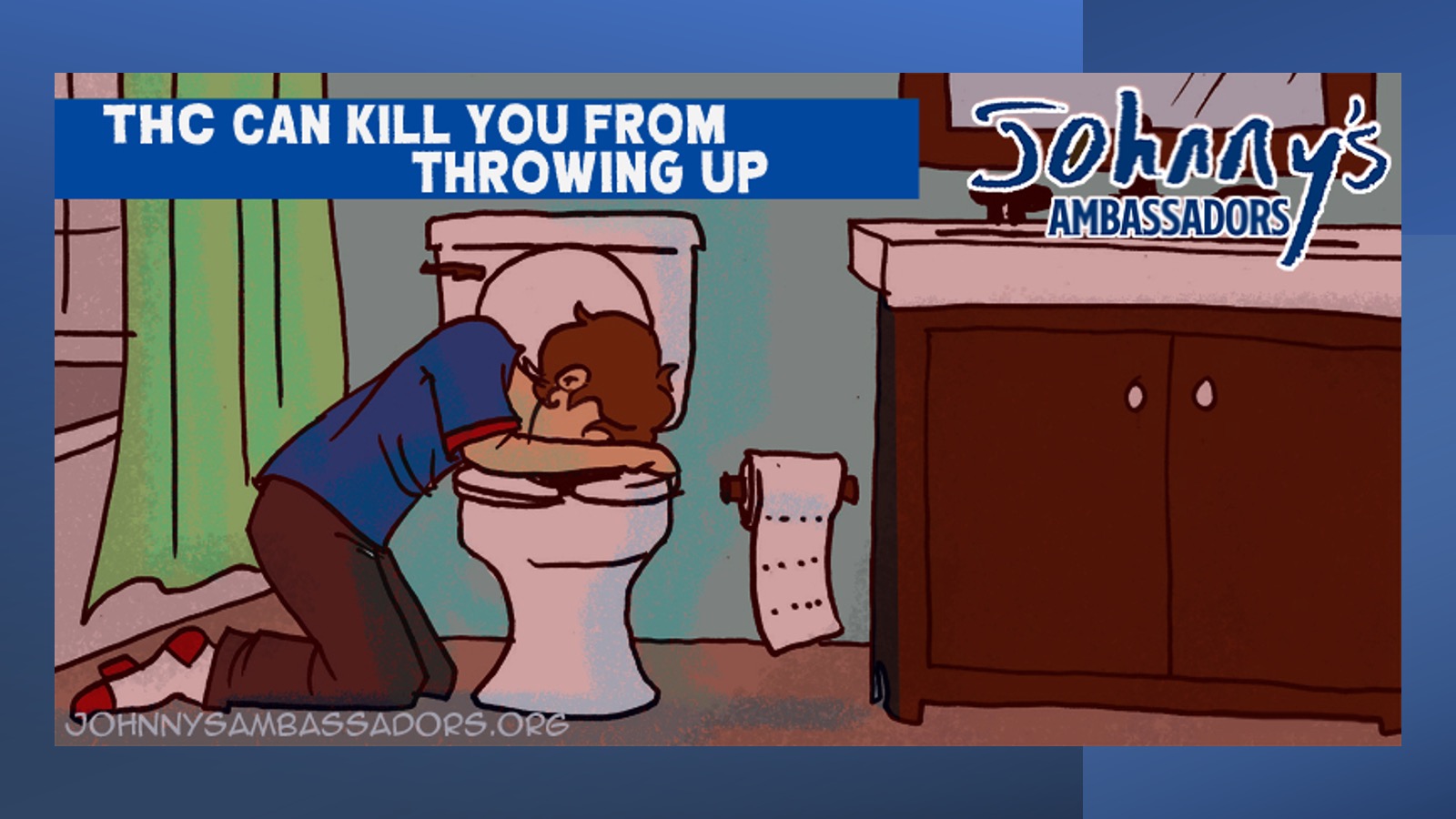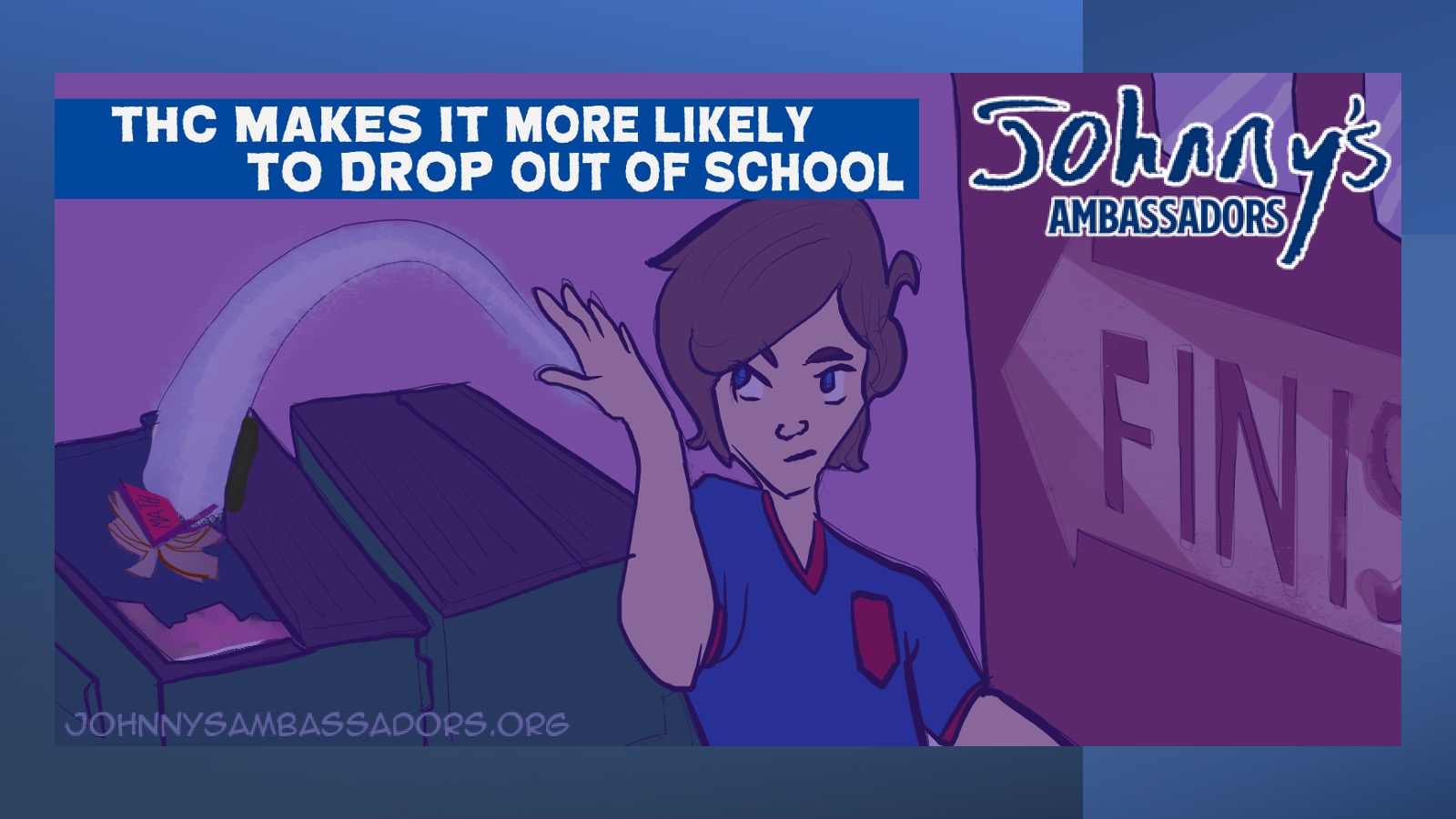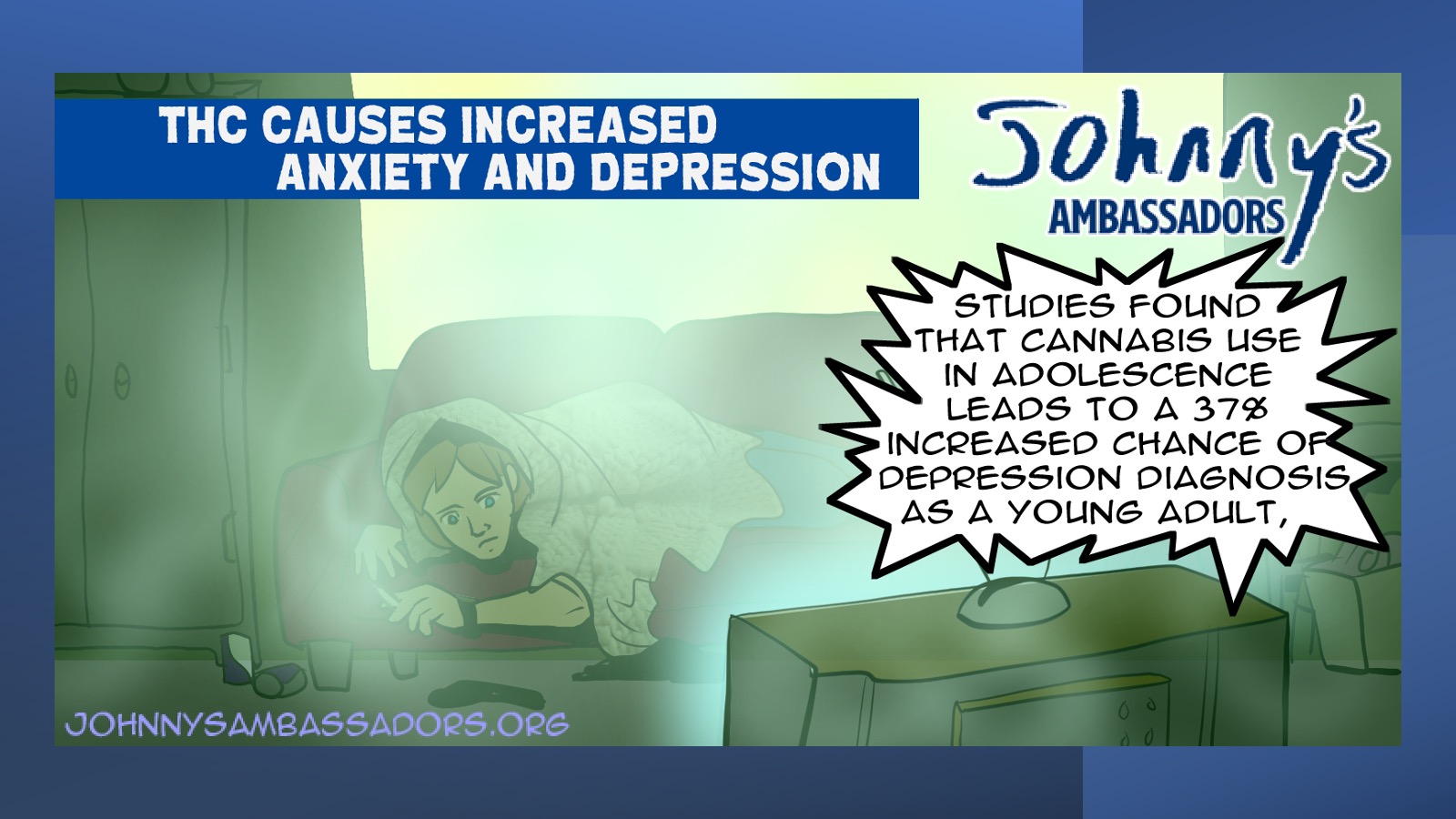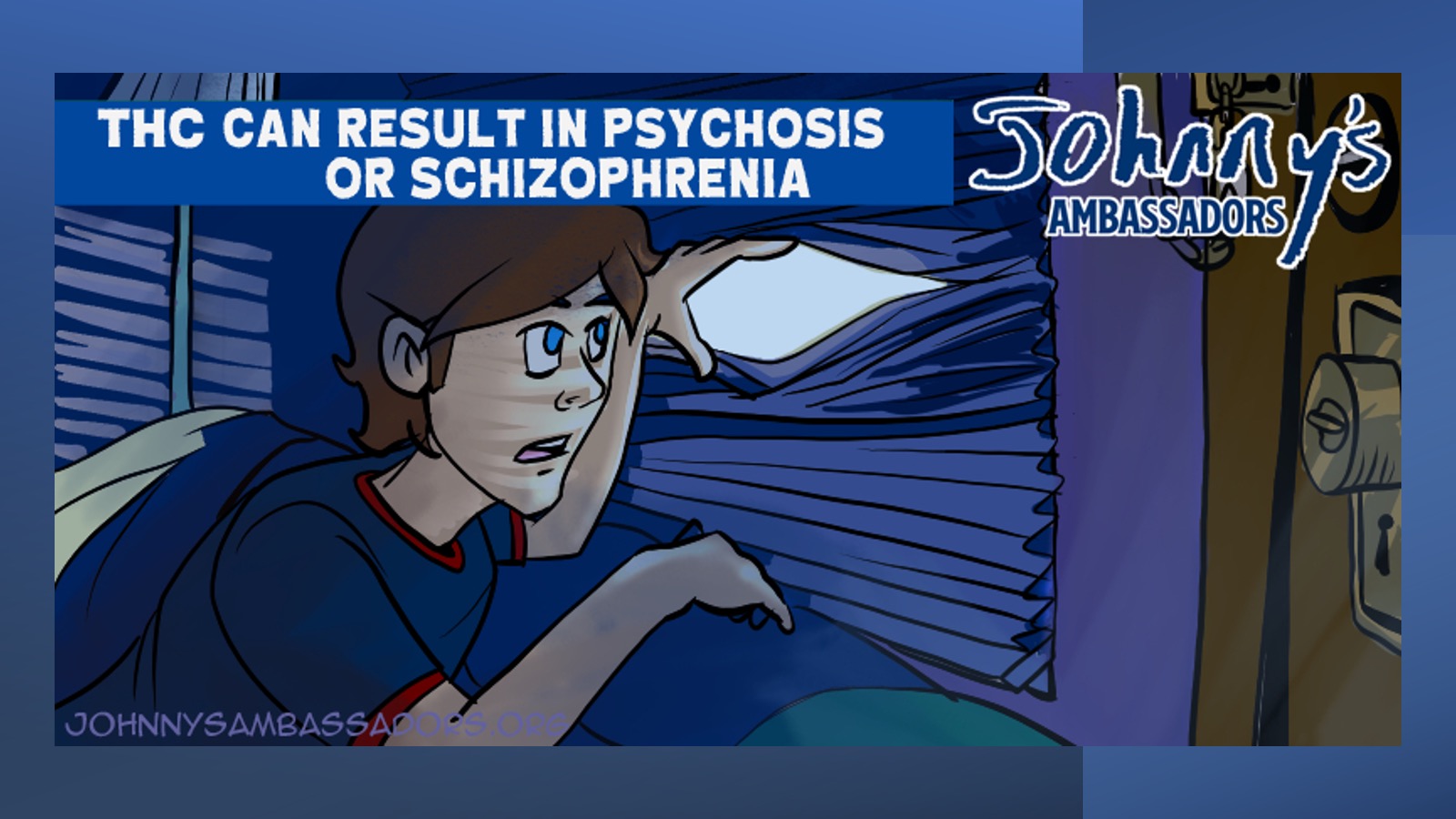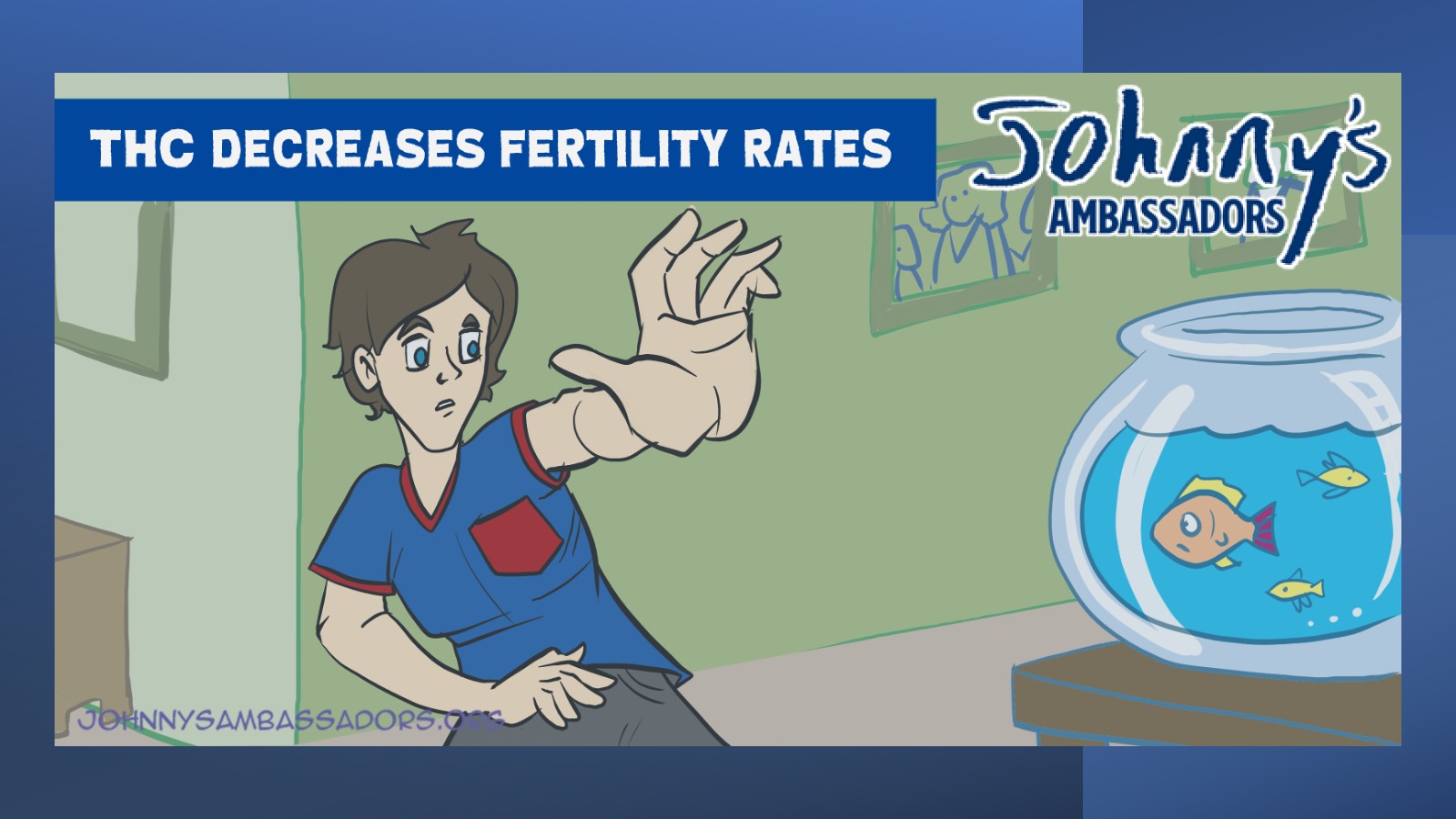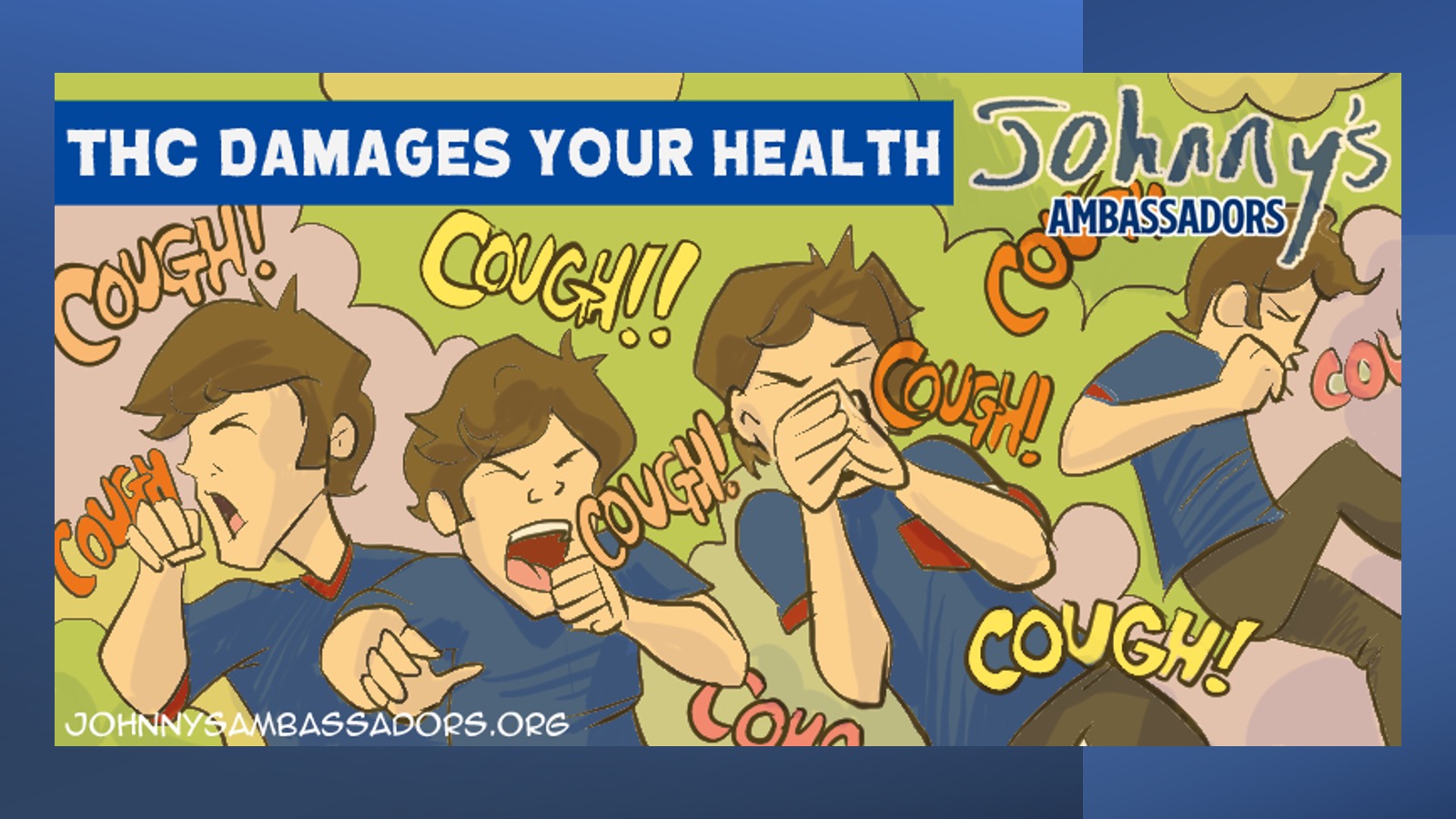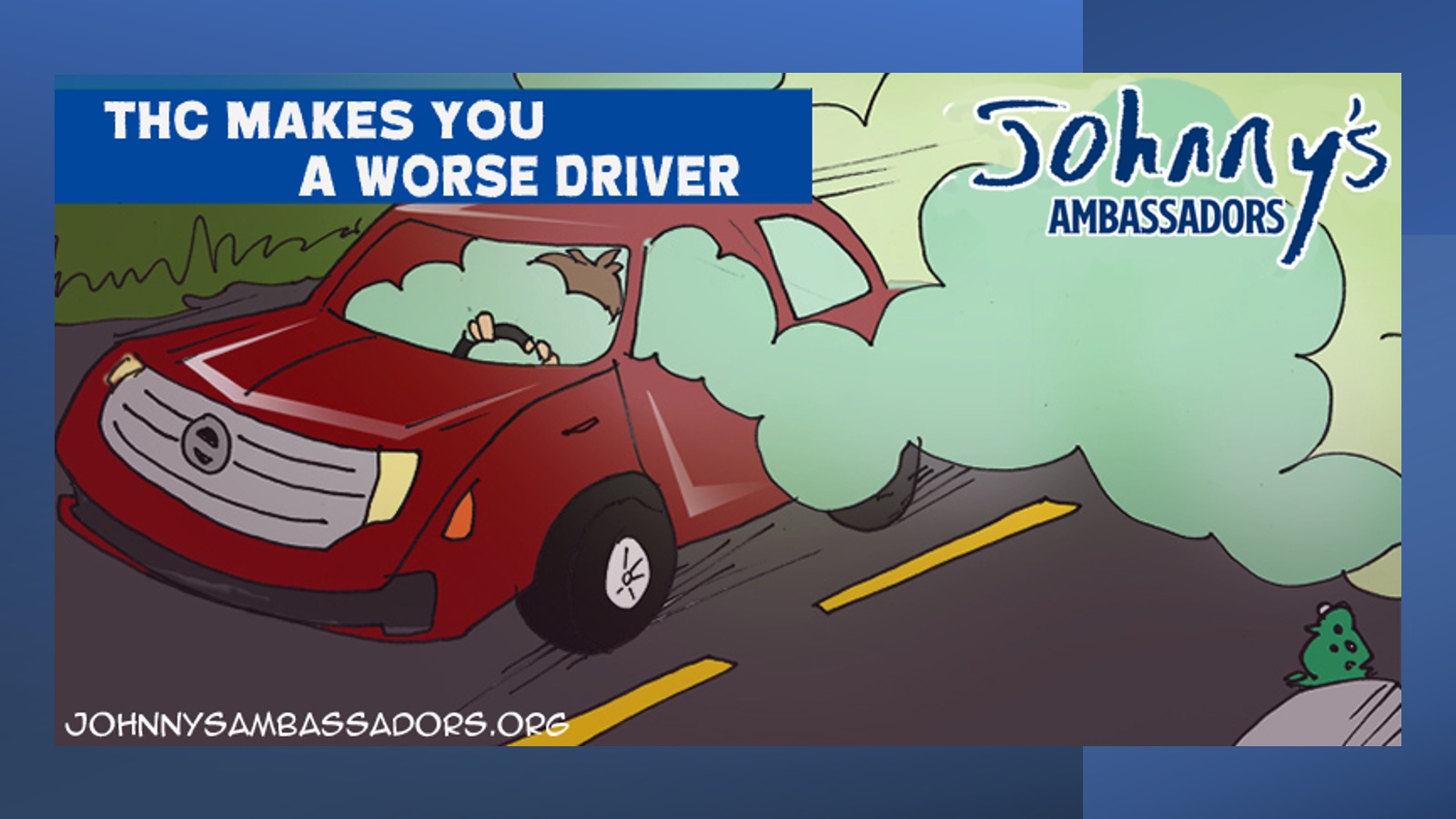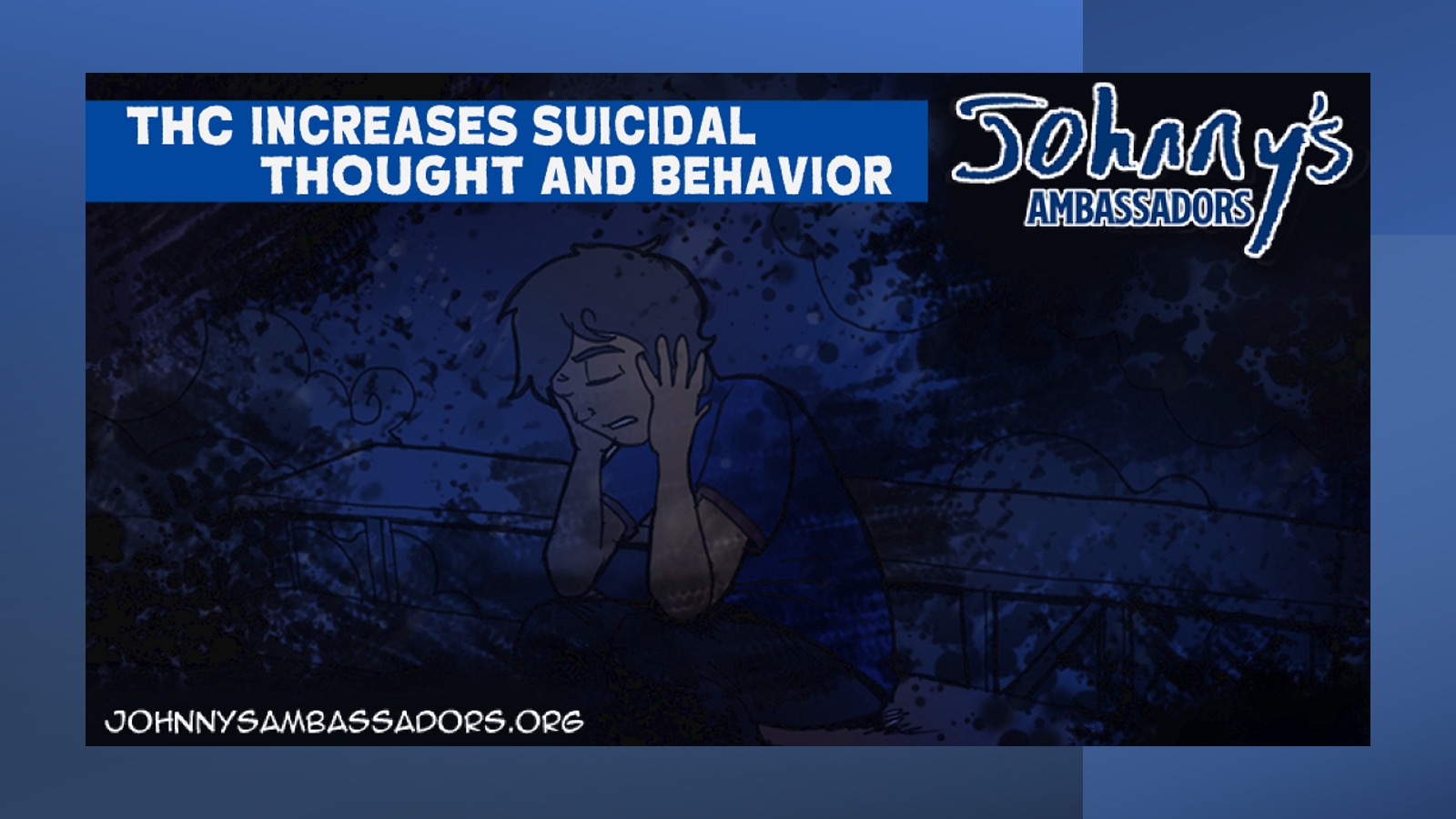You may use these teen THC prevention slides in your educational presentations AS IS. Nothing may be added to the slides, including logos or website addresses. Click each image to download. The notes are included in the slide as well. Enjoy!
THC Causes Addiction
17% of adolescents who use marijuana become addicted, and 50% of daily users become addicted. Why is it so easy to get addicted to THC? When you use THC, it takes four weeks to leave your body. THC is a lipid, which means it binds to fat, and your brain is made of fat. When THC binds to your receptors, your natural chemicals can’t get in. The brain thinks the receptors are full, so they cut back on production. Pretty soon, you must use THC just to feel normal. Research link
THC Decreases Your IQ
THC changes the way the teen brain develops, particularly in the prefrontal cortex and hippocampus, where learning and memory take place. If you use a lot of THC as a teen, you can lose between six to eight IQ points by time you are a young adult. What happens if you lose six to eight IQ points? The average IQ is 100, so if you are an A student, that is a C. If you are a C student, that is an F. This can affect your ability to get into college or have a good career. Research link
THC Increases the Odds You Will Use Other Drugs
According to the 2019 Centers for Disease Control “Youth Risk Behavioral Study,” HAVING EVER USED marijuana was the TOP co-occurring substance use behavior for high school seniors who have abused opioids in the past 30 days, even OVER ALCOHOL use in the past 30 days. In other words, whether you have ever used THC in your lifetime was the #1 predictor a high school senior will have abused opioids in the past 30 days. Overall, adolescent marijuana users are 2.5 times more likely to abuse prescription opioids. Link to research here and here.
THC Can Kill You From Throwing Up
There have been reports of fatal cases of Cannabinoid Hyperemesis Syndrome (CHS), which is a relatively new vomiting disorder caused by THC. Especially when high potency products, like vapes, dabs, and high THC marijuana, are used over long periods of time, it can cause teens to vomit. When you can’t stop vomiting, it can lead to dehydration, kidney failure, and even death. Research link
THC Makes it More Likely To Drop Out Of School
Young people who use THC are at increased risk of poor academic performance and dropping out of school. Many studies have revealed significant associations between THC use and a range of measures of educational performance, including lower grade point average, less satisfaction with school, and negative attitudes about school. Using THC as a teen can significantly increase the risk you’ll drop out of school before you graduate. Research link
THC Causes Increased Anxiety and Depression
Some young people say they use THC because it helps them chill out, reduce anxiety, or control stress. And in the short term, you might feel it’s helping you with those things. But in the LONG term due to changes in neurological development, it increases mental health issues, not decreases it. We see a greater onset of depression and generalized anxiety disorder in young people. Research link
THC Can Result in Psychosis or Schizophrenia
It’s less common, but when some young people use THC, they can become suspicious and paranoid. This is what started happening to Johnny. Using THC can increase your risk of psychosis 5-fold, which is delusional thinking. With continued use, some young people develop a long-term mental illness called schizophrenia, where the paranoid thoughts don’t go away. Schizophrenia is a serious mental health disorder of misinterpretation of reality. Symptoms include hallucinations, delusions, and disordered thinking and behavior. Psychosis (see different library section) is a symptom to being out of touch with reality such as hallucinations, delusions, and disordered thinking. Schizophrenia is a DSM V disorder, while psychosis is a symptom not a disease. Research link
THC Decreases Fertility Rates
If you ever want to get married and have a family, THC can affect the reproductive organs and suppress the expression of testosterone, which can delay puberty and reduce growth. Teen THC use can negatively impact fertility in both males and females. For males, it can lead to reduced sperm count, concentration, and motility, as well as potential hormonal imbalances. In females, THC exposure, particularly during adolescence, may affect ovarian follicle development, potentially impacting egg quality and ovulation. Research link
THC Lowers Your Motivation To Do Things
THC binds to an area of the brain called the orbito-frontal cortex and reduces short-term motivation to get involved in outside activities – basically, laziness. THC can make you just want to sit on the couch or isolate yourself in your room. Teenagers who use THC, the main psychoactive component of cannabis, may experience reduced dopamine levels in the brain, which can lead to decreased motivation. Chronic cannabis use, especially during adolescence, is linked to apathy, lack of initiative, and decreased engagement in goal-directed behavior. Johnny started to drop out of extra-curricular activities one by one. Research link
THC Damages Your Health
Marijuana smoke can cause symptoms of chronic bronchitis, a heavy cough, and lung irritation. There is a 3.5 times greater second-hand smoke effect than from Marlboro Red cigarettes. That means if you smoke around your friends, you are damaging their lungs as well. Marijuana smokers have worse lung damage on CT than tobacco smokers. This study reviewed chest CT examinations on 56 marijuana smokers, 57 nonsmoker controls, and 33 tobacco only smokers. Marijuana smokers had a higher rate of emphysema 75%, compared to nonsmokers 5%, and tobacco smokers 67%. Airway inflammation and emphysema were more common in marijuana smokers. Research link
THC Makes You A Worse Driver
THC binds with receptors in the basal ganglia and cerebellum, decreasing reaction time and coordination. Getting into a car with someone who has been using THC means you’re literally putting your life in their hands, as THC is incredibly incapacitating. It is never safe to drive impaired on any substance. Driving is impaired for up to 4.5 hours after smoking cannabis despite a false sense of driving safety. 191 Participants were given driving simulation test after smoking placebo, 5.9% or 13.4% THC. increasing willingness to drive at 1 hour 30 minutes may indicate a false sense of driving safety. Worse driving performance is evident for several hours post smoking in many users. Research link
THC Increases Suicidal Thoughts and Behaviors
THC use as a teen increases your risk of developing depression and suicidal behavior later in life. Australia and New Zealand did a study of 2,000 teens ages 17 and younger who were using THC every day. In that group, they found a 7-fold increase in suicide attempts. Research link and Many More Studies

